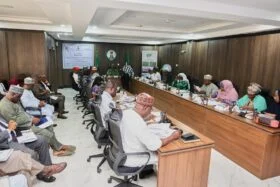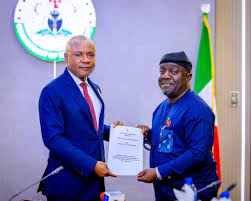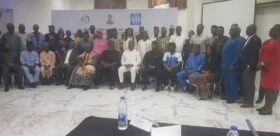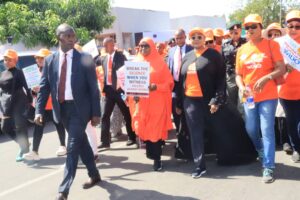The Federal Government is partnering with the Agro-Climatic Resilience in Semi-Arid Landscapes (ACReSAL) project to restore degraded lands and promote sustainable livelihoods across the semi-arid regions of Nigeria.
ACReSAL, a World Bank-funded initiative, is designed to address land degradation and climate change challenges in 19 northern states.
This decision was reached during the Federal Technical Committee (FTC) meeting of the ACReSAL project, held with the Federal Ministry of Environment on Wednesday in Abuja.
The meeting brought together stakeholders to review the project’s progress and examine its Annual Work Plan for the upcoming implementation year.
Mr Mahmud Kambari, Permanent Secretary in the Ministry of Environment, described the session as a defining moment in Nigeria’s pursuit of environmental sustainability and community resilience.
“As we confront the realities of climate change, drought, and food insecurity, our shared vision through ACReSAL is transforming into concrete action. This plan embodies our collective responsibility to restore degraded lands, strengthen livelihoods, and secure a sustainable future for millions of Nigerians,” Kambari said.
Dr Marcus Ogunbiyi, Permanent Secretary in the Ministry of Agriculture and Food Security, reaffirmed the ministry’s full commitment to the project’s goals.
“The ACReSAL project aligns perfectly with our mission to strengthen food security through climate-smart agriculture. By promoting drought-tolerant crops, soil restoration, and improved farming practices, we are empowering smallholder farmers and building resilience in rural communities. Together, we can ensure that our agricultural sector continues to thrive despite environmental challenges,” Ogunbiyi said.
Similarly, Mr Richard Pheelangwah, Permanent Secretary in the Ministry of Water Resources and Sanitation, underscored the project’s vital role in safeguarding Nigeria’s water ecosystems and improving sanitation in semi-arid areas.
“ACReSAL offers a comprehensive approach to managing our fragile water systems through watershed rehabilitation, sustainable irrigation, and rainwater harvesting. We are not only preserving water resources but also enhancing public health and agricultural productivity. Our ministry remains committed to providing the technical leadership necessary to advance water security nationwide,” Pheelangwah said.
Mr Abdulhamid Umar, National Project Coordinator of ACReSAL, presented updates on the project’s current progress and impact across participating states.
He explained that ACReSAL’s interventions are technology-driven and include afforestation, reforestation, ecosystem restoration, erosion and flood control, livelihood initiatives, climate-smart agriculture, water management, capacity building, and policy development.
“Strategic catchment management planning, institutional strengthening, and environmental education are all geared toward achieving long-term impacts and sustainable environments,” he said.
Umar added that the project had so far restored over 800,000 hectares of degraded land, with civil works nearing completion in several states.
He further noted that over 8.7 million people had benefited from the project, including more than 4.1 million women, and cited the successful restoration of the Nguru Wetlands and Hadejia axis as examples of ACReSAL’s transformative results.
The meeting concluded with a collective call for sustained inter-ministerial cooperation to ensure that ACReSAL continues to deliver tangible benefits to communities affected by desertification, drought, and land degradation.
(NAN)







